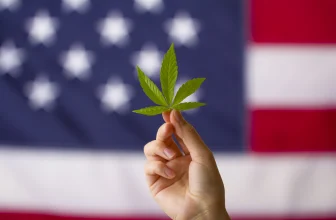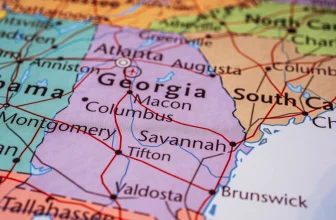
It’s getting late in the year, and there’s plenty of movement in the world of cannabis. Here’s what you may have missed this week:
1. The VA is opposing a veterans’ marijuana research bill.
During a recent hearing, a representative from the U.S. Department of Veterans Affairs (VA) voiced the organization’s opposition to a bill that would require them to conduct clinical trials on marijuana as a potential treatment for chronic pain and PTSD. The bill, put forth by Rep. Lou Correa (D-CA), is intended to help veterans by creating potential alternatives to harmful and addictive drugs like opioids.
The VA claims the bill is overly “redundant,” prescriptive, and does not meet their standards of letting scientific merit guide their research. Advocates of the bill include a number of groups such as Disabled American Veterans, the American Legion, and others.
2. On November 2nd, you may be able to vote on the future of marijuana and psychedelics in your state.
For many states across the country, November 2nd will be a big voting moment. Though it’s neither a midterm nor presidential election, many states and municipalities have put marijuana and psychedelics on the ballot. States like Michigan, Colorado, Pennsylvania, Ohio, Virginia, and others have a range of legislation to vote on.
Some are citywide initiatives meant to force the state to consider broader legalization, while others change tax laws or (in the case of Virginia) elect a legalization-friendly governor. All of this is important to grow the country’s burgeoning cannabis market.
3. In Marin County, CA, 604 people have had their cannabis charges dropped.
The California District Attorney’s Office has either reduced or dropped the cannabis charges of 604 individuals. All of these charges were made before 2017, but they have been retroactively dropped due to California’s legalization law. Code for America assisted the District Attorney’s Office in identifying cases that were eligible for relief.
Lori Frugoli, Marin County’s DA, said they are working to make sure anyone who has had such a conviction knows their case may have been dismissed or reduced. She also noted that “the effect of a conviction on a person’s record can have a multitude of negative effects, including lost job and housing opportunities.”
4. Flowhub’s funding round gained them $19M, including an investment from Jay-Z.
Flowhub has just closed its most recent funding round, which saw the cannabis point-of-sale platform take in $19 million in strategic funding. The organization has raised $50 million so far and is valued at over $200 million. This round saw a personal investment from Shawn Carter, better known as Jay-Z. At present, Flowhub is processing over $3 billion in retail cannabis sales each year via more than a thousand dispensaries.
With the new funding, the company hopes to speed up its expansion — including expanding into emerging markets overseas — and will focus on growing its product line and its social equity initiatives.
5. A major acquisition is set to occur when the U.S. legalizes cannabis.
Cannabis companies are now signing agreements for acquisition deals that depend on the U.S. changing its federal cannabis policies. The agreement was made for Canadian firm Canopy Growth to acquire Wana, North America’s most popular brand of edibles.
The acquisition will occur once the federal government legalizes marijuana and will cost $297.5 million, a sum that will gain Canopy Growth 100% of Wana’s three entities: Wana Wellness, Mountain High Products, and the Cima Group. Canopy Growth will automatically lead the edibles industry when the purchase goes through. Until that day comes, however, Wana will continue to operate as an independent company.
6. Indoor grows are popular, but they’re not great for the environment — outdoor is the way to go when possible.
The reputation of cannabis as an earth-saving, carbon-devouring green giant comes with a caveat: it needs to be grown outdoors. According to the Augusta Free Press, indoor cannabis grows are actually detrimental to the environment, while outdoor grows are far better.
Generally, no electricity is required for outdoor grows, whereas indoor grows require running electric lights between 12 and 18 hours per day and running fans 24 hours per day. They also require more plastic and other materials. Outdoor grows are cheaper, more productive (in most cases), and better for the planet.






